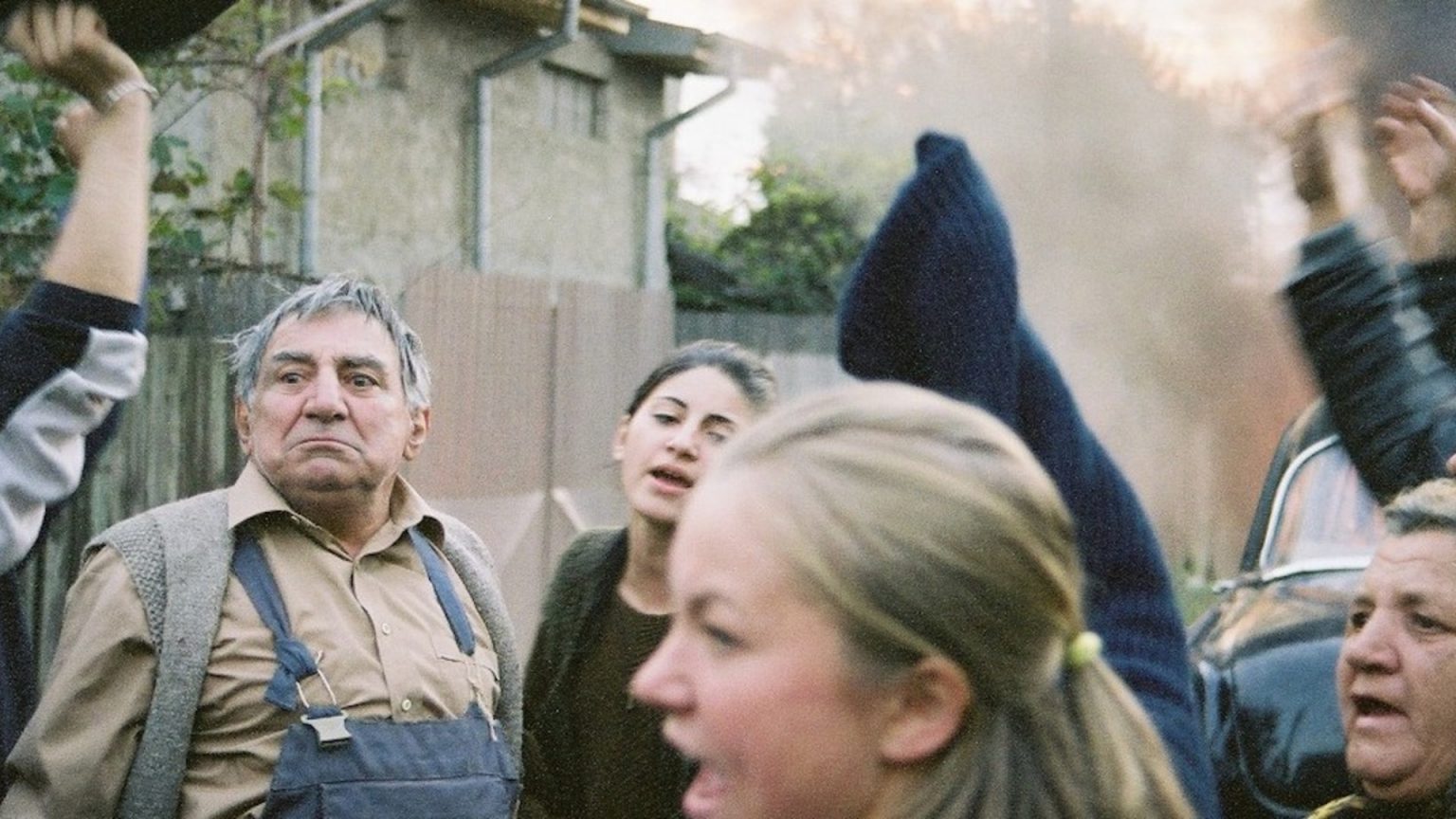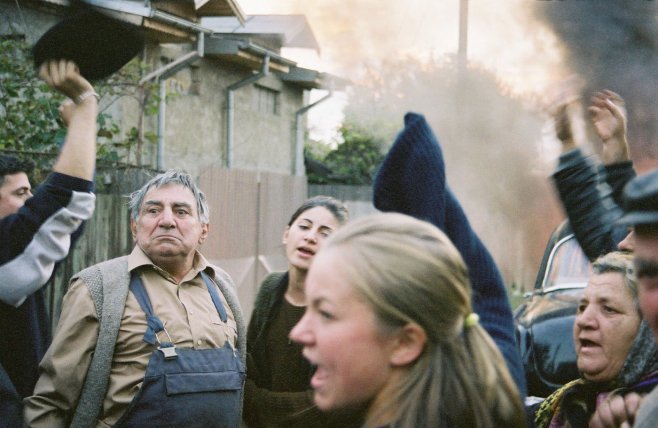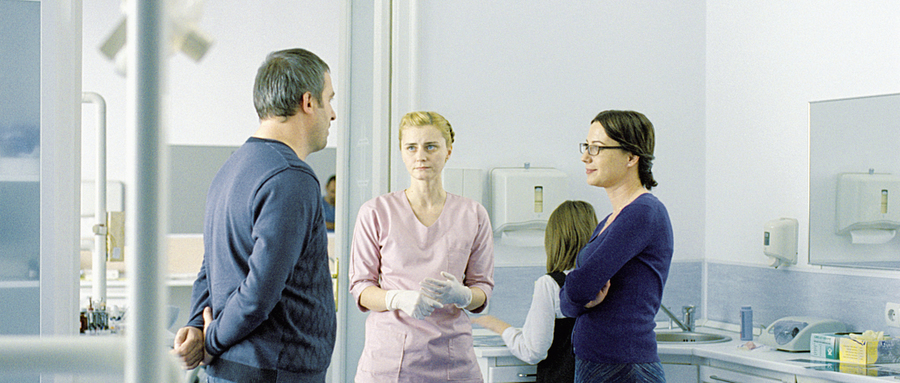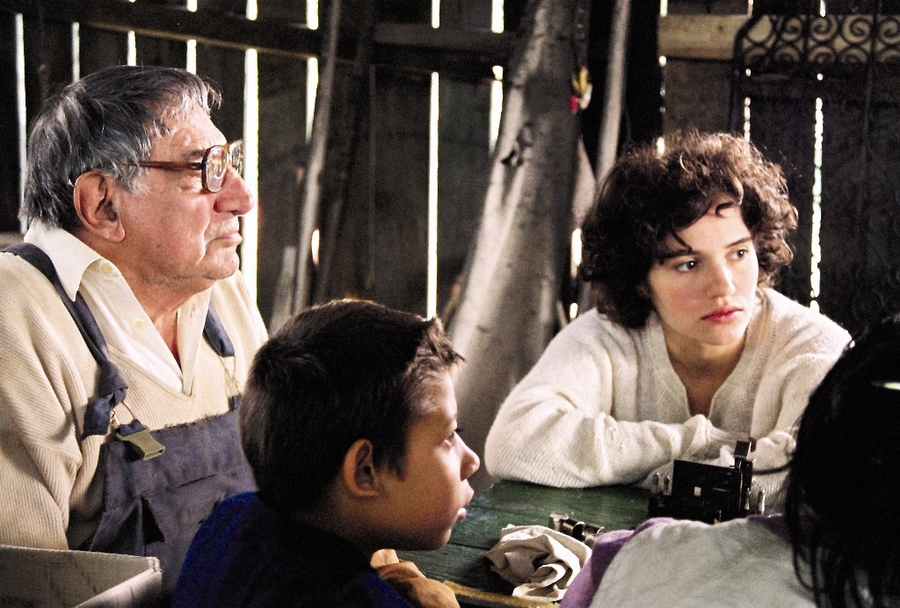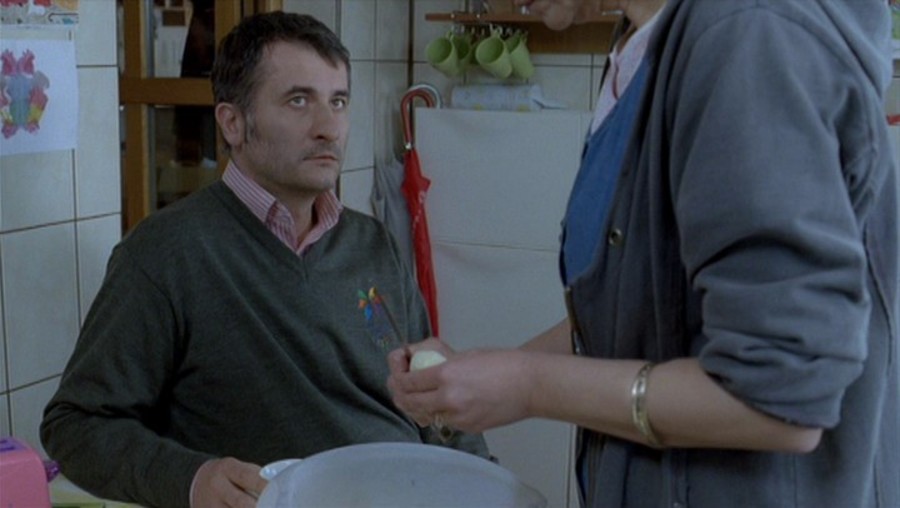Editor’s note: This list appears as part of our ongoing Hotspots series putting a geographic focus on film this fall.
Apart from some isolated names and titles, Romanian cinema remained virtually unknown to the rest of the world until the 2000s, when the so-called Romanian New Wave emerged. In 2004, a series of internationally awarded shorts—Cristi Puiu’s Cigarettes and Coffee, Catalin Mitulescu’s Traffic, Corneliu Porumboiu’s Liviu’s Dream and Constantin Popescu’s The Apartment, among others—placed Romania firmly in view. In subsequent years, the Cannes Film Festival became the best platform for a new generation of filmmakers who were winning some of its most prestigious prizes.
Several of these Romanian New Wave films are set during Nicolae Ceausescu’s dictatorship (1967-1989), indicating the need to throw some light on a silenced history, in order to build a national cinema. Others are modern-day, character-based explorations that aim to offer a portrait of post-Communist society. The label that defines Romanian cinema is realism: austere, minimalist aesthetics, long takes, and a camera that closely follows the characters. Human relationships are usually subjected to power structures and class differences, while daily actions often become bureaucratic ordeals—but, in the best examples, filled with tension and suspense, punctuated by black comedy, or shaped by a conceptual approach.
Tuesday, After Christmas (2010)
After The Paper Will Be Blue (2006)—a historical take set on the last night of the Romanian Revolution—Radu Muntean directed two films dealing with the existential crisis of a man in present-day Romania. In Summer Holiday (2008), the protagonist indulges in a night of revelry to recover the freedom of his youth for some hours, before returning to his family obligations. Tuesday, After Christmas (2010) explores the opposite situation: in this variation on the world’s oldest story, Paul (Mimi Branescu) is married to Adriana (Mirela Oprisor), but has a romantic relationship with Raluca (Maria Popistasu), his daughter’s dentist. A series of incidents occurring during the Christmas period prompt Paul to make a choice between these two women.
Composed entirely of sequence-shots that enhance the naturalness of the performances, Muntean’s camera always searches for the right distance from which to tell its story. Setting aside any moral judgement, Tuesday, After Christmas succeeds in exploring the range of emotions and reactions experienced within this love triangle, and ends magnificently well: punctuating the immediate relief with a note of uncertainty that leaves us wondering about the future.
The Way I Spent the End of the World (2006)
Catalin Mitulescu’s 2006 debut feature is a charming teen movie set in the last months of Ceausescu’s dictatorship. The action that puts the film in motion is, initially, accidental, but it becomes political: Eva’s boyfriend breaks a statue of the leader; but it is she who is expelled from school while he, under his father’s protection, remains uncharged. However, the film—with its softly comic touches and intimations of magic realism—downplays the implicit harshness of the political context. In this sense, it can be related to certain nostalgic visions of the Communist era in other countries, such as Good Bye, Lenin! (Wolfgang Becker, 2003).
The finest aspect of The Way I Spent the End of the World is its depiction of family relations, especially between Eva (Dorotheea Petre), the enigmatic protagonist, and her sibling Lalalilu (Timotei Duma). Most of the film hinges on Eva’s dreams, hopes, responsibilities, and feelings—but they are almost unspoken, rendered through action scenes and ‘still lives’, as well as through the reactions of her secretly-in-love little brother.
Aurora (2011)
Cristi Puiu’s debut feature, Stuff and Dough (2001), was the first sign announcing that something new was happening in Romanian cinema. But it was his second feature, The Death of Mr. Lazarescu (2005), that ‘officially’ inaugurated the Romanian New Wave when it won the Un Certain Regard prize at Cannes. This movie is the first of a six-part series titled (in homage to Eric Rohmer) ‘Stories From the Suburbs of Bucharest’ that Puiu has continued in 2010 with Aurora.
Viorel (performed by the director himself) is a silent, inscrutable man who wanders the suburbs of Bucharest and, eventually, commits several killings. His motivations will remain unknown until the film’s end. But there is much information that Puiu withholds or hides in order to confront the viewer solely with an obsessive, extremely detailed study of Viorel’s movements (and immobility). Stylistically, Aurora resembles many other films of the Romanian New Wave; for most of its running time, however, Puiu’s exercise seems almost a parody of a Jean-Pierre Melville noir that demystifies the hero and strips him of his aura, in order to immerse him in tawdry, everyday reality.

